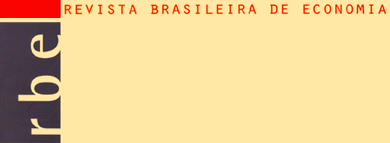The aim of this paper is to analyze the convergence hypothesis across Brazilian States in a 60 year period (1947-2006). In order to test the existence of income convergence, the order of integration of the income differences between each State and São Paulo is examined. The time series approach does not include any covariate and, as a result, it can be viewed as an unconditional test. São Paulo is the richest State and for this reason is used as a benchmark. First of all, we employed the conventional unit root tests, finding evidence against the convergence hypothesis. However, given the lack of power of unit root tests, especially when the rate of convergence is very low, we used ARFIMA models, which is also theoretically more appropriate (Michelacci e Zaffaroni, 2000). Even so, the estimation results of the ARFIMA models cast doubts on the convergence hypothesis.
Growth Model; Stochastic Convergence; Long Memory; Brazil























